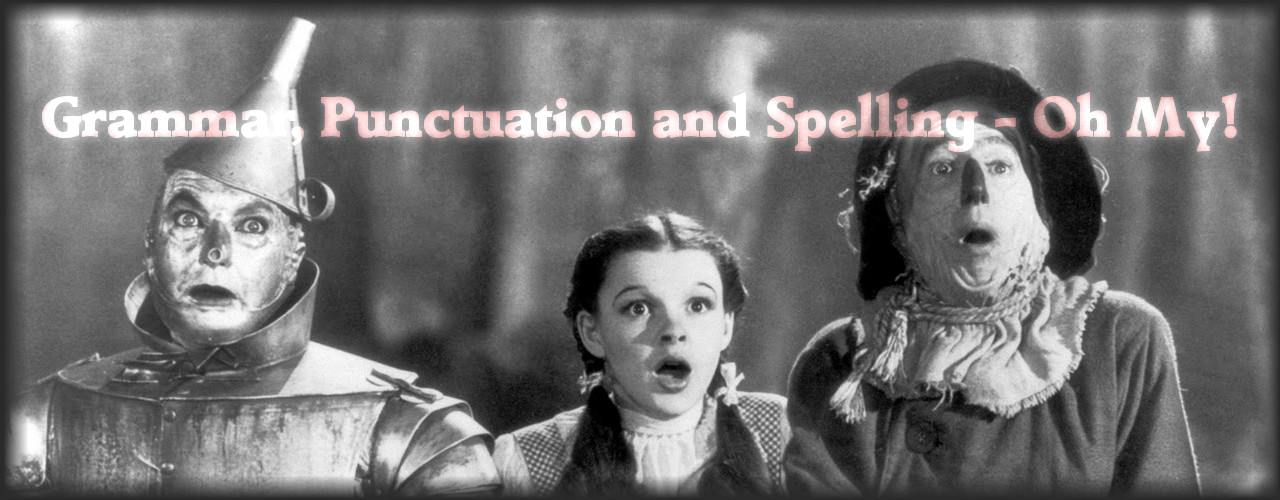There are reasons we read fiction. Finding out how good the author is at their spelling, grammar and punctuation is not one of them.
If it is for you, you’re a stickler. Or a sicko. Or a sticklo. There, that last one isn’t in the dictionary, yet I think it’s a perfectly acceptable word in this context. Put that in your pipe and smoke it.
The Last Sweep
If you’ve been following on, you’ll have learnt about my ‘sweeps’ when editing your manuscript. Good, you’ve gotten to the last leg. The first sweep was about the story. No amount of good grammar can make up for a flimsy plot. The second sweep let you look at the finer points of language and character. The last sweep is, you guessed it, the bit that no one, except sticklos, enjoys.
I guess the first thing you need to do is print out your copy, get your red pen again, get a good cup of espresso and find somewhere comfortable.
With luck, most of your spelling mistakes have been auto-corrected by your word processor as you’ve been going along. If you can trust the grammar correction, this might help as well. Believe me when I say, these are just tools. You still need to look over your draft to make sure that it actually is correct.
Want an example? Hampton Court Ghost, I had a device called a magnetoscope. The spell checker cracked it at me, underlining it with a red squiggle. “Not a word, not a word!” Fine, whatever. Ignore it, add it to the dictionary, don’t care. Oops, what did I do? I also added magentoscope – spot the difference? – at the same time, thus foiling what should have been my protection. Uncool.
How about this? “Tow the line” versus “Toe the line”? Both have correct spelling, and, technically, both are grammatically correct, but the actual idiom I’m after is Toe the Line.
Too, to, two. They’re, their, there. Homonyms, homophones, synonyms, ring any bells? Back to school for you!
The problem is this: Punctuation matters. Putting a comma in the wrong spot can change the entire meaning of a sentence. Using the wrong homophone can make your work look juvenile. Smattering… ellipses… all… throughout… your… work… will… just… piss… people… off…
For the most part, I, as a reader, will happily forgive the missing capital letter, or dropped article, or misplaced adjective, so long as its not too frequent and the story is decent. I mean, heck, mistakes happen, and ending a sentence in a preposition is not the end of the world.
What Else Is There?
There’s the usual stuff to look out for. The aforementioned stuff you learn in school. Capitals for the start of a sentence and for proper nouns. Commas between successive adjectives. Proper use of the definite and indefinite article… *snore*
Alright, alright. There’s more than that. That was a pretty strong espresso, so you might as well make the most of the caffeine hit. For starters, make sure your punctuation is keeping the flow of reading going, rather than holding it back. While too few commas is a bad thing, too many is downright clumsy.
“And so he wrote, to his dearest Lucy, inasmuch as his thoughts, though random, allowed him, as he fought the haze of mind, pertaining to the adventure he had, if you’ll remember, as I’m sure you do, only last week…” Ew.
Another issue I’ve faced personally is the dialect barrier. As an Australian author, my vocabulary is typically Australian, as is my grammar, spelling and punctuation.
I write colour, not color. Learnt, not learned. Not only that, but there are some words that aren’t internationally acceptable, like “Tacker” or “Flabbergasted” or even “Wanker”. So while I might very well have exactly the right word I want to use, if I’m writing for a different dialect, I lose out – I’ve got to find another word.
Even things like “Mate” need to be replaced with “Buddy” or “Pal”. “Dude” seems to be universal these days.
So when writing, editing and proofing Adaptation (Set in America, written in the American dialect) I have to wear a different hat to when I’m writing Paranormology (Victorian England) or Atlas Broken or The Bullet (Australian).
I can set the spell check on the word processor to use the right dictionary, and that helps immensely, but it can only go so far. If you get stuck, go find yourself a sticklo. Would that, then, be a stucklo?
In an upcoming post, I’ll show you how I use that red pen so as to keep the editing going smoothly.


[…] slog to get through, especially the third draft. It’s where I have to concentrate not only on grammar and spelling, but flow, repetition and any major flaws that are sitting there. Did Barnes come before or after I […]